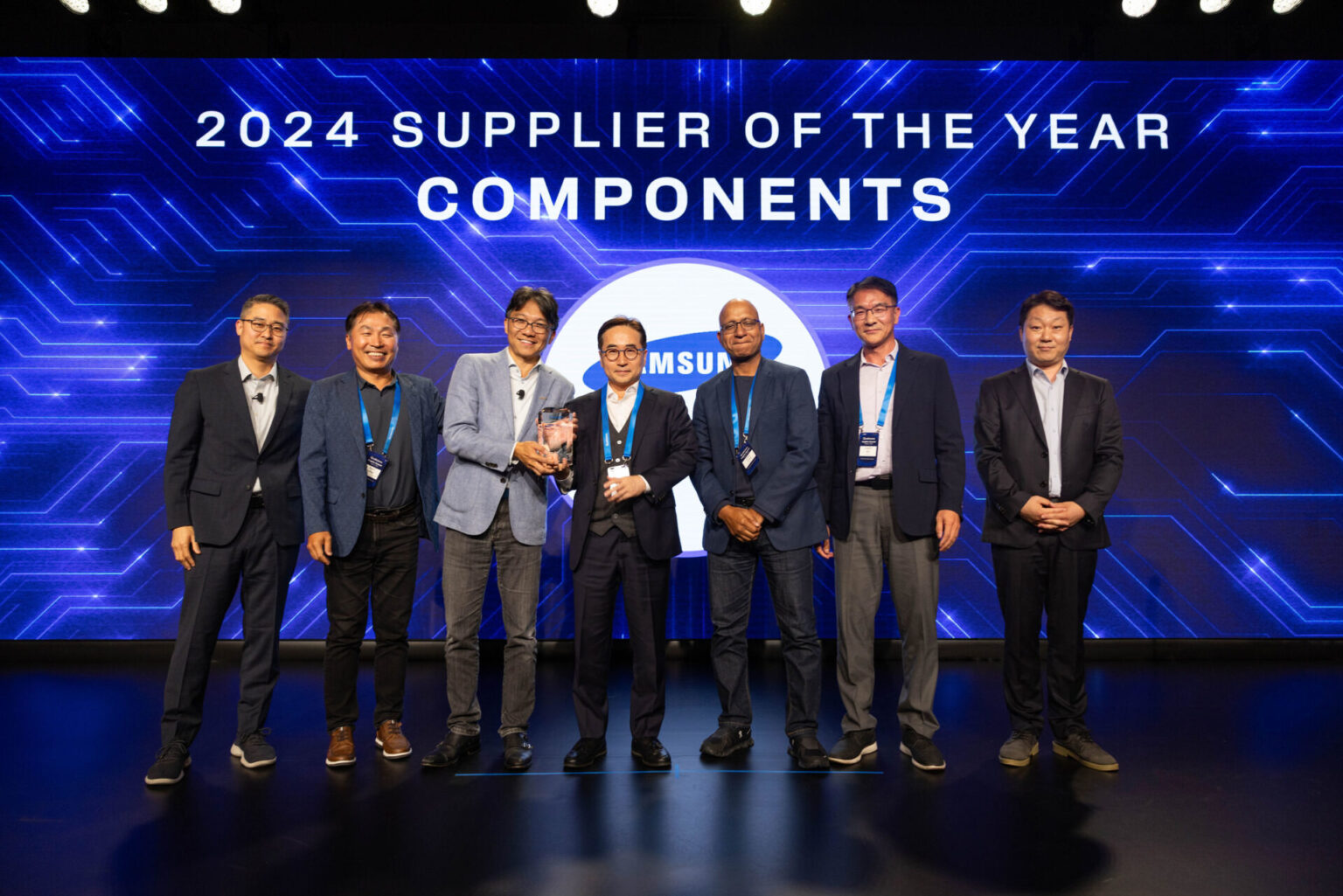|
Getting your Trinity Audio player ready...
|
Samsung Electro-Mechanics, a subsidiary of Samsung Electronics, has announced a breakthrough that could revolutionize the wearable tech industry. According to industry sources, the South Korean company has developed the world’s first all-solid-state battery specifically designed for wearable devices.
This cutting-edge technology is poised to replace traditional lithium-ion batteries, offering greater safety, flexibility, and performance. The battery prototype, which boasts an energy density of 200 watt-hours per liter, is expected to enter mass production by 2026.
The Innovation: What Are All-Solid-State Batteries?
Unlike conventional lithium-ion batteries that use liquid electrolytes, all-solid-state batteries rely on solid electrolytes, filling the gap between the anode and cathode. This shift is a game-changer. Lithium-ion batteries, while prevalent, come with safety concerns because their liquid electrolytes are flammable, making them prone to overheating and combustion. In contrast, all-solid-state batteries are expected to offer enhanced safety, eliminating the risk of fire due to their solid composition.
Moreover, all-solid-state batteries provide significant advantages in terms of energy density, durability, and flexibility. These features make them ideal for wearable devices, which require smaller, safer, and more adaptable power sources to meet the increasing demands of consumers.
“Our client company is carrying out a series of performance tests on the battery prototype,” a Samsung Electro-Mechanics official disclosed, without revealing further details due to confidentiality.
Applications in Wearable Devices and Beyond
Wearable devices, such as smartwatches, fitness trackers, and Augmented Reality (AR) and Virtual Reality (VR) headsets, have long been constrained by battery limitations. Traditional lithium-ion batteries have shown difficulties in maintaining both flexibility and power, especially when shaped to fit compact, curved designs. The need for extra space to accommodate volume expansion during charging further limits the ability to miniaturize batteries for small devices.
Samsung’s all-solid-state battery appears to be the solution the industry has been waiting for. Its flexibility allows it to take on a wide range of shapes and sizes, overcoming the design restrictions that have plagued the wearable market. This innovation means that the batteries can be easily integrated into the increasingly slim and compact designs of future wearables.
While Samsung Electronics itself is likely to be one of the first customers for this advanced technology, sources also suggest that other tech giants, including Apple, Google, and Xiaomi, could soon adopt the battery for their own wearable products. This could fuel intense competition among global leaders in the tech industry, all racing to develop smarter, longer-lasting, and safer wearables.
Samsung’s Aggressive Push Toward Next-Gen Battery Technology
The development of the all-solid-state battery is part of Samsung Electro-Mechanics’ broader push into five high-potential business sectors, as laid out by CEO Chang Duck-hyun. During the 2024 Consumer Electronics Show (CES) in Las Vegas, Chang emphasized the importance of areas such as glass substrates, silicon capacitors, hybrid lenses for automotive cameras, and, of course, all-solid-state batteries. The company also highlighted the importance of solid oxide electrolysis cells, which have critical applications in manufacturing plants.
Samsung’s focus on innovation has been backed by significant investments in research and development. Over the past three years, the company has applied for approximately 40 patents on the chemical composition and structural innovations of its all-solid-state batteries. Among these patents is one that was recently granted in South Korea, focusing on improving moisture resistance in oxide electrolytes—an essential advancement for ensuring the long-term stability of the batteries.
What Does This Mean for Electric Vehicles?
While the immediate focus is on wearable devices, the success of Samsung Electro-Mechanics’ all-solid-state battery could have far-reaching implications, particularly in the electric vehicle (EV) industry. Currently, the size of all-solid-state batteries for EVs poses significant challenges, particularly when it comes to managing high interface resistance and ensuring sufficient battery capacity. However, experts say that Samsung’s latest achievement could pave the way for advancements in EV batteries as well.
“All-solid-state batteries for EVs have to be bigger in size than those in wearable devices, which leads to a high level of interface resistance and low battery capacity,” explained Yang Min-ho, an energy engineering professor at Dankuk University. “But the latest news offers a rosy outlook for the development of EV batteries in the coming years.”
Given the automotive industry’s urgent push to adopt cleaner, more efficient power sources, the potential for applying Samsung’s all-solid-state battery technology to electric vehicles could transform the sector. It could help alleviate some of the concerns surrounding current EV battery limitations, including safety risks and charging times.
Looking Ahead: A Game-Changer for Multiple Industries
With the mass production of these all-solid-state batteries expected to begin in 2026, Samsung Electro-Mechanics has positioned itself at the forefront of next-generation energy solutions. The flexibility and safety offered by the new technology make it highly desirable for wearable devices, which are only becoming more integral to consumers’ lives.
Moreover, its potential application in electric vehicles and other sectors means that this development could have a profound impact on multiple industries. The race for the future of energy storage is on, and Samsung’s latest milestone indicates that the future may arrive sooner than we think.
